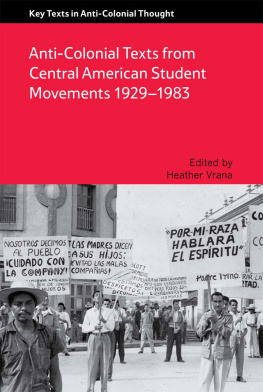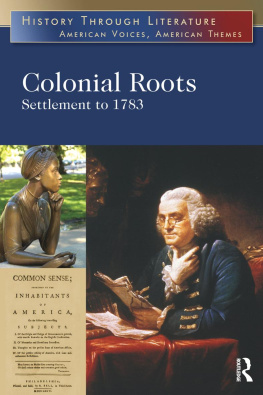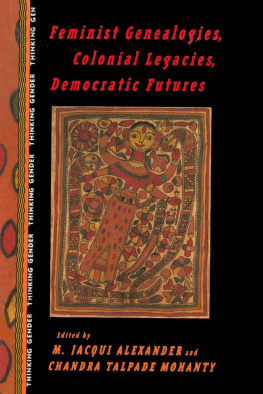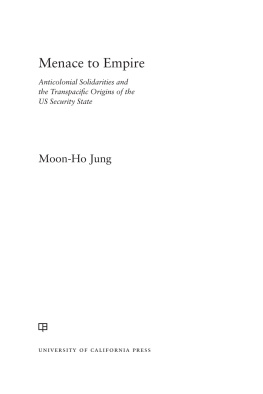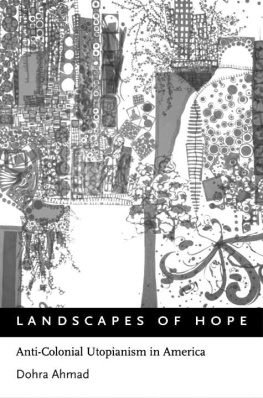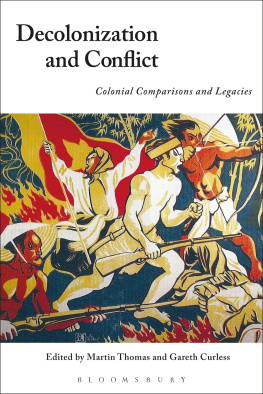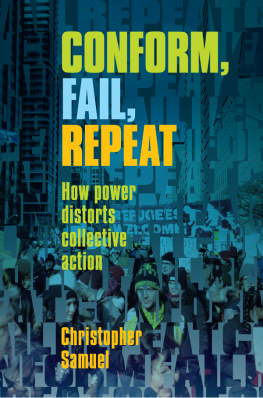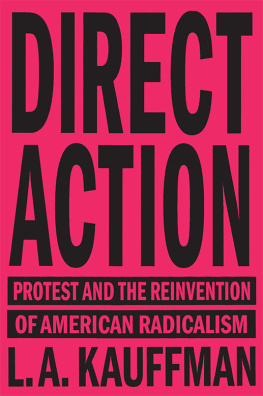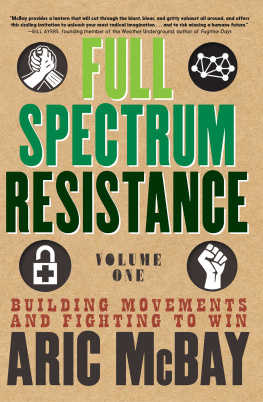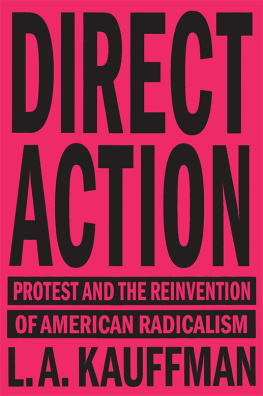Vrana - Anti-Colonial Texts from Central American Student Movements 1929âe 1983
Here you can read online Vrana - Anti-Colonial Texts from Central American Student Movements 1929âe 1983 full text of the book (entire story) in english for free. Download pdf and epub, get meaning, cover and reviews about this ebook. City: Edinburgh, year: 2017, publisher: Edinburgh University Press, genre: Politics. Description of the work, (preface) as well as reviews are available. Best literature library LitArk.com created for fans of good reading and offers a wide selection of genres:
Romance novel
Science fiction
Adventure
Detective
Science
History
Home and family
Prose
Art
Politics
Computer
Non-fiction
Religion
Business
Children
Humor
Choose a favorite category and find really read worthwhile books. Enjoy immersion in the world of imagination, feel the emotions of the characters or learn something new for yourself, make an fascinating discovery.
Anti-Colonial Texts from Central American Student Movements 1929âe 1983: summary, description and annotation
We offer to read an annotation, description, summary or preface (depends on what the author of the book "Anti-Colonial Texts from Central American Student Movements 1929âe 1983" wrote himself). If you haven't found the necessary information about the book — write in the comments, we will try to find it.
Vrana: author's other books
Who wrote Anti-Colonial Texts from Central American Student Movements 1929âe 1983? Find out the surname, the name of the author of the book and a list of all author's works by series.
Anti-Colonial Texts from Central American Student Movements 1929âe 1983 — read online for free the complete book (whole text) full work
Below is the text of the book, divided by pages. System saving the place of the last page read, allows you to conveniently read the book "Anti-Colonial Texts from Central American Student Movements 1929âe 1983" online for free, without having to search again every time where you left off. Put a bookmark, and you can go to the page where you finished reading at any time.
Font size:
Interval:
Bookmark:

Anti-Colonial Texts from Central American Student Movements 19291983
Key Texts in Anti-Colonial Thought
Series Editor: David Johnson, The Open University
Available titles
The Revolutionary and Anti-Imperialist Writings of James Connolly 18931916
Edited by Conor McCarthy
African American Anti-Colonial Thought 19171937
Edited by Cathy Bergin
Anti-Colonial Texts from Central American Student Movements 19291983
Edited by Heather Vrana
Anti-Colonial Texts from Central American Student Movements 19291983
Edited by Heather Vrana

Edinburgh University Press is one of the leading university presses in the UK.
We publish academic books and journals in our selected subject areas across the humanities and social sciences, combining cutting-edge scholarship with high editorial and production values to produce academic works of lasting importance. For more information visit our website: edinburghuniversitypress.com
editorial matter and organisation Heather Vrana, 2017
the chapters their several authors, 2017
Edinburgh University Press Ltd
The Tun Holyrood Road
12(2f) Jacksons Entry
Edinburgh EH8 8PJ
A CIP record for this book is available from the British Library
ISBN 978 1 4744 0371 9
The right of Heather Vrana to be identified as the editor of this work has been asserted in accordance with the Copyright, Designs and Patents Act 1988, and the Copyright and Related Rights Regulations 2003 (SI No. 2498).
Published with the support of the Edinburgh University Scholarly Publishing Initiatives Fund.
Key Texts in Anti-Colonial Thought re-publishes selections of anti-colonial texts and locates them in their colonial/neo-colonial contexts. Leading scholars in Postcolonial Studies introduce a wide variety of hitherto hard-to-access anti-colonial writings. Each volume opens with a substantial introduction contextualising the selected texts, setting out the specific forms of colonial governance, economic exploitation, and cultural imperialism they wrote against, as well as the communities of resistance, the solidarities and the distinctive political cultures that sustained them. In addition, the volumes provide extensive explanatory notes, annotated guides to further reading, and concluding discussions of the texts relevance today. The series aims to counter the dependency of Postcolonial Studies on a narrow range of theorists and literary texts, and to provoke reflection on the connections between anti-colonial thought and contemporary resistance to global inequalities.
David Johnson
To edit a source reader is to become indebted to many people. First, I must thank David Johnson. As a new friend and editor, David has been kind, generous, funny, persuasive, and provocative, by turns. His subtle encouragement has shaped this volume and my thinking in many ways that I am still coming to appreciate. At Edinburgh University Press, Adela Rauchova, Jackie Jones, and Rebecca Mackenzie have been so very helpful and enthusiastic in their support of the project.
In Guatemala, I am forever thankful for the generosity of Thelma Porres Morfn and the excellent team of archivists at the Centro de Investigaciones Regionales de Mesoamrica (CIRMA). Likewise in Nicaragua, Margarita Vannini and Lissette P. Ruiz at the Instituto de Historia de Nicaragua y Centroamrica (IHNCA) gave generously of their time and expertise, providing a most welcoming intellectual community in Managua. Yale Universitys library staff, especially in Microfilm collections and Interlibrary Loan, were key to the success of this volume. Many thanks to the North American Congress on Latin America (NACLA) for decades of important advocacy and for the use of many texts. The university presses of the Universidad Nacional Autnoma de Honduras, Universidad de El Salvador, Universidad de Costa Rica, Universidad de San Carlos, and Universidad Autnoma Nacional de Nicaragua also continue to provide inimitable intellectual resources. My thanks to David Daz Arias for the La Tribuna article. Thanks, too, to the families of Manuel Mora Valverde and to Daisy Zamora, who kindly permitted the inclusion of their texts in the volume. Kevin Coleman enthusiastically granted permission for the use of the photograph that appears on the cover.
Along the way, the generosity of Vikki Bell, Kevin Coleman, David Daz Arias, Anne Eller, Jeff Gould, Peter Guardino, David Kazanjian, Ellen Moodie, Claudio Prez Cruz, Alexandra Puerto, Christy Thornton, and J. T. Way shaped this project in ways for which I am very grateful. Many of these kind scholars I met through the Tepoztln Institute for the Transnational History of the Americas, which has become my intellectual home.
Without the hard work of Rachel Nolan, Allessandra Paglia, Jorge Cullar, Claudia Rueda, and Vikram Tamboli, this project would have been impossible.
As ever, thank you to my mother and father, Mary and Jon Vrana, and to my sister, Anna Vrana. Thanks to kidd, whom I blame for this. This book has taken shape in New Haven, Seward, London, Managua, Antigua, Guatemala City, Bloomington, New York City, and Brighton. In each of these places, the friendship of Alex Abbotts, Siobhan Carter-David, E. Cram, Taylor Dean, Brie Gettleson, Julie Gibbings, Laura Grover, David Kazanjian, Lauren Lederman, lvaro Len, Devi Mays, Fabian Menges, Cassi Meyerhoffer, Chris Sloan, Chris Sullivan, and Mike Tallon has enlivened the solitary process of curating this text.
All of the texts below (except those by Daisy Zamora) were originally published in Spanish and carefully translated by a team of translators: Rachel Nolan, Jorge Cullar, Allessandra Paglia, Vikram Tamboli, and Claudia Rueda. These translators gave generously of their time and attention tremendous scholars, they are also excellent translators. When necessary, I have edited the translations and added explanatory footnotes. Occasionally, when a text was especially difficult to translate and required a more involved process of editing, I have noted dual authorship. The poems by Daisy Zamora were translated by Margaret Randall and Elinor Randall, and published in Clean Slate: New and Selected Poems, Willimantic, CT: Curbstone Press, 1993. Translators are noted below each text.
This project presented a curatorial challenge. Only a fraction of the nearly two hundred texts that I initially considered for the volume are included here. Ultimately, the principle of selection was based on two criteria: authorship and exemplary or unique expression of anti-colonial thought. Most of the texts below were written by students. Occasionally, texts written by faculty or administrators were included when they represented an important moment or conversation at the university about students or students roles in society. Sources that reflected exemplary or unique perspectives were often chosen over manifestos that were, generally, the most common type of student-authored anti-colonial text. After all, a book of only manifestos would soon become a tedious read. The sources reflect a variety of genres, including manifesto, memoir, legislative decree, interview, and poetry. In order to capture a range of understandings and deployments of anti-colonial theory, I also selected texts that pursued anti-colonial perspectives in unique ways. Given the scope of the series, documents that outlined global solidarities and affinities between Central American student movements were especially important.
Font size:
Interval:
Bookmark:
Similar books «Anti-Colonial Texts from Central American Student Movements 1929âe 1983»
Look at similar books to Anti-Colonial Texts from Central American Student Movements 1929âe 1983. We have selected literature similar in name and meaning in the hope of providing readers with more options to find new, interesting, not yet read works.
Discussion, reviews of the book Anti-Colonial Texts from Central American Student Movements 1929âe 1983 and just readers' own opinions. Leave your comments, write what you think about the work, its meaning or the main characters. Specify what exactly you liked and what you didn't like, and why you think so.

